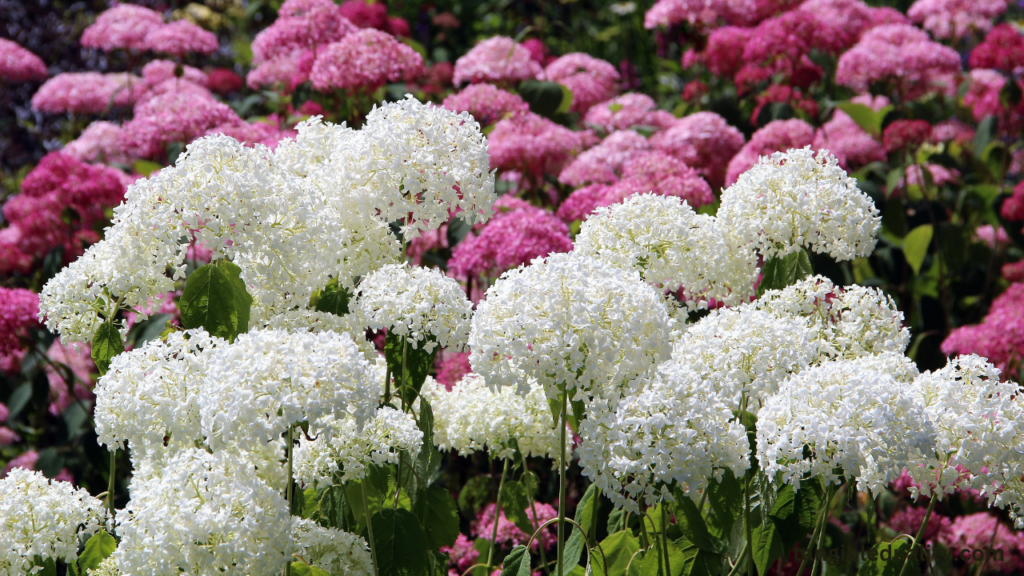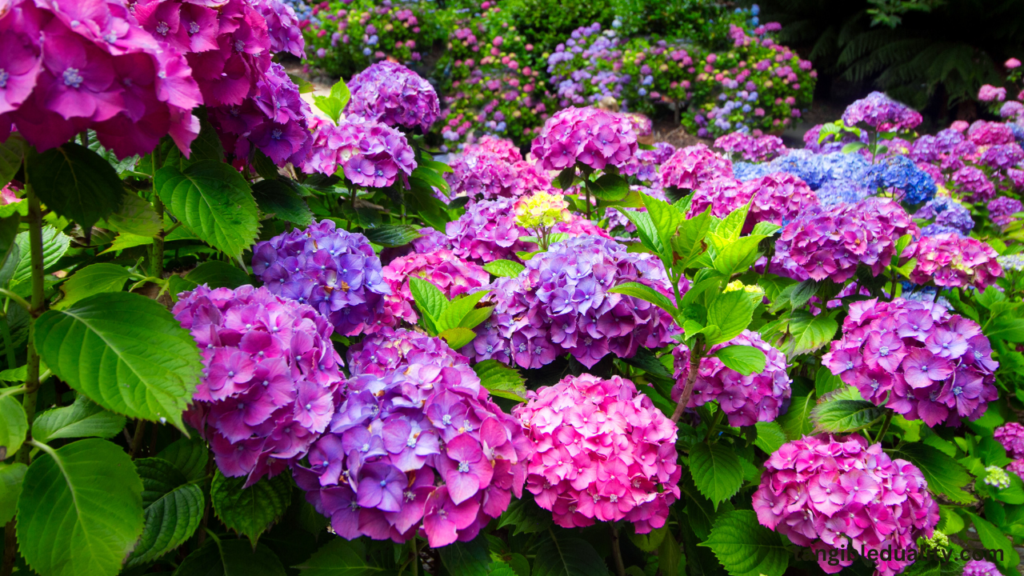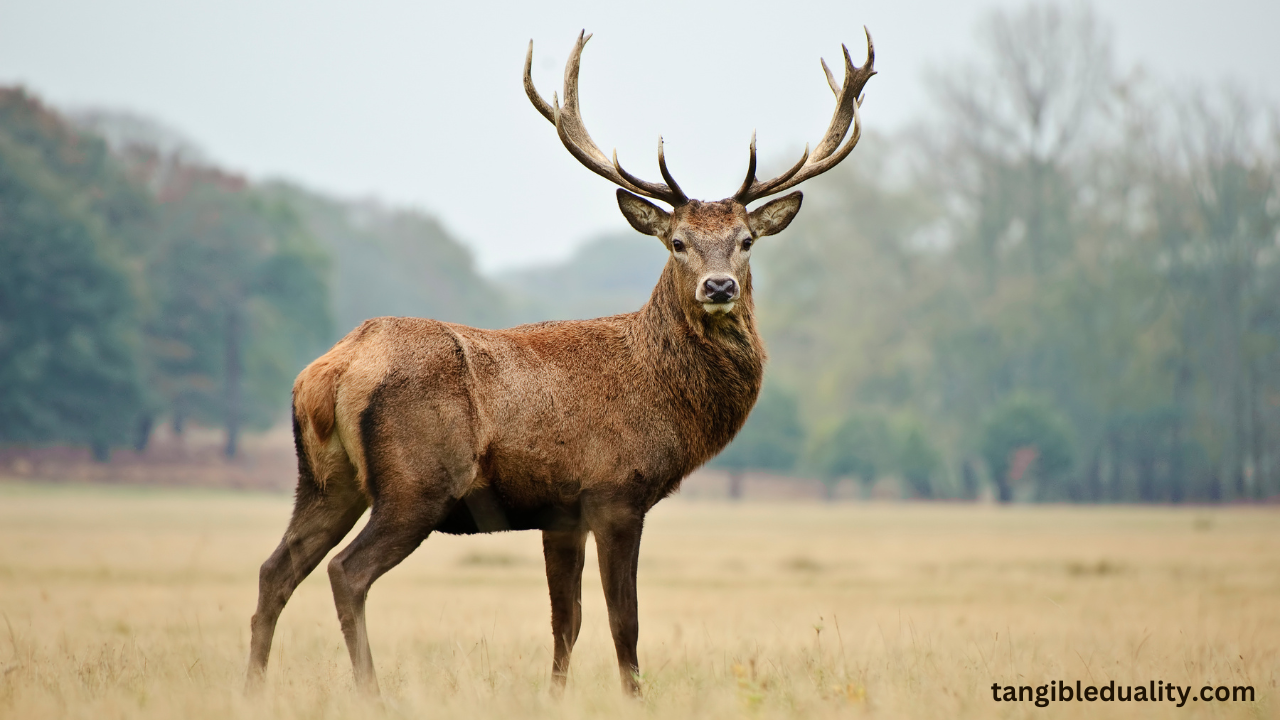Although hydrangeas are highly regarded for their stunning flowers and verdant foliage, they are also a popular choice for deer that are looking for something to eat.
If you have ever woken up to discover that your cherished hydrangeas had been eaten down to the point of stubs, you are familiar with the aggravation that comes with dealing with these annoying garden guests.
Have no fear, however, because there are tried-and-true methods that can prevent deer from nibbling on your hydrangeas. You can protect your plants and maintain the appearance of your garden through various means, ranging from natural deterrents to physical barriers.
In the following paragraphs, we will discuss some of the most efficient strategies for preventing deer from damaging your hydrangeas and protecting them from damage. Whether you choose to plant kinds that are resistant to deer, use repellents, or construct a barrier around your garden, some alternatives are suitable for any gardening style and budget.
By putting these techniques into action, you will be able to appreciate the beauty of your hydrangeas without having to worry about them being damaged by deer. With these tried-and-true methods for preventing deer from grazing on your plants, you can say goodbye to leaves that have been eaten and hello to blossoms that are blossoming.
Hydrangeas are a beloved addition to many gardens, renowned for their beautiful blooms and lush foliage. However, these stunning plants often fall victim to hungry deer who find them irresistible. Understanding why deer are attracted to hydrangeas and learning effective ways to deter them can help gardeners protect their cherished plants.

Why Are Deer Attracted to Hydrangeas?
Understanding Deer Behavior Towards Hydrangeas
Deer are naturally drawn to hydrangeas due to their succulent leaves and vibrant flowers. These plants provide a tempting feast for deer, especially during times when food sources may be scarce.
Factors Making Hydrangeas Appealing to Deer
The lush growth habit of hydrangeas, coupled with their tender foliage, makes them a prime target for grazing deer. Deer also have a keen sense of smell, allowing them to easily locate hydrangeas in the garden.
Impact of Deer Feeding on Hydrangeas
When deer feed on hydrangeas, they can cause significant damage to the plants. From stripped leaves to broken branches, the aftermath of deer grazing can be disheartening for gardeners who have put effort into nurturing their hydrangeas.
What Are Effective Ways to Deter Deer from Eating Hydrangeas?
Using Deer-Resistant Varieties of Hydrangeas
Choosing hydrangea varieties that are known to be deer-resistant is a proactive approach to safeguarding your plants. Varieties such as Endless Summer and Limelight are less likely to be targeted by deer.
Implementing Physical Barriers to Protect Hydrangeas
Installing fences or nets around hydrangea beds can create a barrier that deters deer from reaching the plants. Ensure the barriers are tall enough to prevent deer from jumping over them.
Applying Deer Repellents Safely and Effectively
Deer repellents, whether homemade or commercially available, can be sprayed on and around hydrangeas to deter deer. However, to maintain their effectiveness, regular reapplication, especially after rainfall, is necessary.
How to Keep Deer Away from Your Hydrangeas Naturally?
Utilizing Natural Deer-Repelling Plants in Your Garden
Strategically planting deer-repelling vegetation like lavender, sage, or yarrow around your hydrangeas can help mask the plants’ scent, making them less attractive to deer.
Creating Scent Barriers to Deter Deer from Hydrangeas
Scattering strong-smelling items like clove or garlic near your hydrangeas can create a scent barrier that discourages deer from approaching. These natural scents can overwhelm a deer’s sensitive nose.
Implementing DIY Deer-Repellent Sprays for Hydrangeas
Making your deer-repellent spray using ingredients like hot pepper, garlic, and vinegar can be an effective way to protect your hydrangeas. For best results, apply the spray regularly.

What Are Some Deer-Resistant Hydrangea Varieties?
Exploring Oakleaf Hydrangeas and Their Deer-Resistance
Oakleaf hydrangeas, with their attractive foliage and cone-shaped blooms, are known to be deer-resistant. Planting these varieties can help keep deer from feasting on your garden.
Benefits of Panicle Hydrangeas in Deterring Deer
Panicle hydrangeas, with their elongated flower clusters, are another deer-resistant option for gardeners looking to protect their plants. These varieties are less likely to be eaten by deer.
Considering Climbing Hydrangeas as a Deer-Resistant Option
Climbing hydrangeas, known for their climbing vines and abundant blooms, can serve as a deer-resistant alternative in gardens where deer frequently roam. Their height and climbing nature make them less accessible to deer.
How Can Gardeners Protect Their Hydrangeas from Deer Damage?
Installing Deer-Proof Fences and Nets Around Hydrangea Beds
Creating a physical barrier using deer-proof fences or nets is a reliable way to safeguard your hydrangeas from deer intrusion. Regular inspection and maintenance of these barriers are key to their effectiveness.
Utilizing Deer-Repellent Plants to Safeguard Hydrangeas
Incorporating plants like boxwood, catmint, or salvia, which are natural deer repellents, into your garden design can help protect your hydrangeas by deterring deer from the area.
Implementing Natural Deterrents like Cloves to Keep Deer at Bay
Scattering cloves or other strong-smelling substances near your hydrangeas can act as a natural deterrent, making the plants less appealing to deer. Regularly replenish the scent barrier for continued effectiveness.
Conclusion
Preserving the health of your hydrangeas from deer is a combination of preventative measures and continuing maintenance.
The beauty of your hydrangeas can be protected and preserved by employing tried-and-true procedures such as installing physical barriers, applying repellents, and selecting plant varieties that are resistant to deer infestation.
To maintain the health and vitality of your cherished hydrangea plants, remember to monitor your garden regularly, adjust your strategies as necessary, and remain diligent in your efforts to repel deer.
FAQs
Q: What are some proven strategies to keep deer from eating your hydrangeas?
A: There are several effective ways to keep deer away from your hydrangeas, such as using deer-resistant plants around your garden, applying deer repellent spray, and installing a fence around your garden bed.
Q: How can I stop deer from eating my hydrangeas without using harmful chemicals?
A: You can plant deer-resistant shrubs around your garden or use natural deterrents like hanging bars of soap or spraying a mixture of garlic and hot peppers to keep them away.
Q: Do deer really love to eat hydrangeas?
A: Yes, hydrangeas are a favorite among deer and are often one of the first plants they target in a garden because of their tender leaves and vibrant blooms.
Q: What are some deer-resistant plants that I can incorporate into my garden to protect my hydrangeas?
A: Plants like lavender, boxwood, salvia, and yarrow are known to be resistant to deer and can help create a barrier to keep them away from your hydrangeas.
Q: Are there any DIY methods to repel deer from eating my hydrangeas?
A: Yes, you can try using a mixture of water, garlic, cayenne pepper, and dish soap as a homemade deer repellent spray to protect your plants.
Q: How high of a fence should I install to keep deer from jumping into my garden?
A: To deter deer from jumping into your garden, it is recommended to install a fence that is at least 8 feet tall to prevent them from accessing your hydrangeas.
Q: Are there any perennial options that I can plant to keep deer away from my garden?
A: Perennials like hostas, ornamental grasses, and ferns are also known to be deer-resistant and can help protect your garden from hungry deer.

